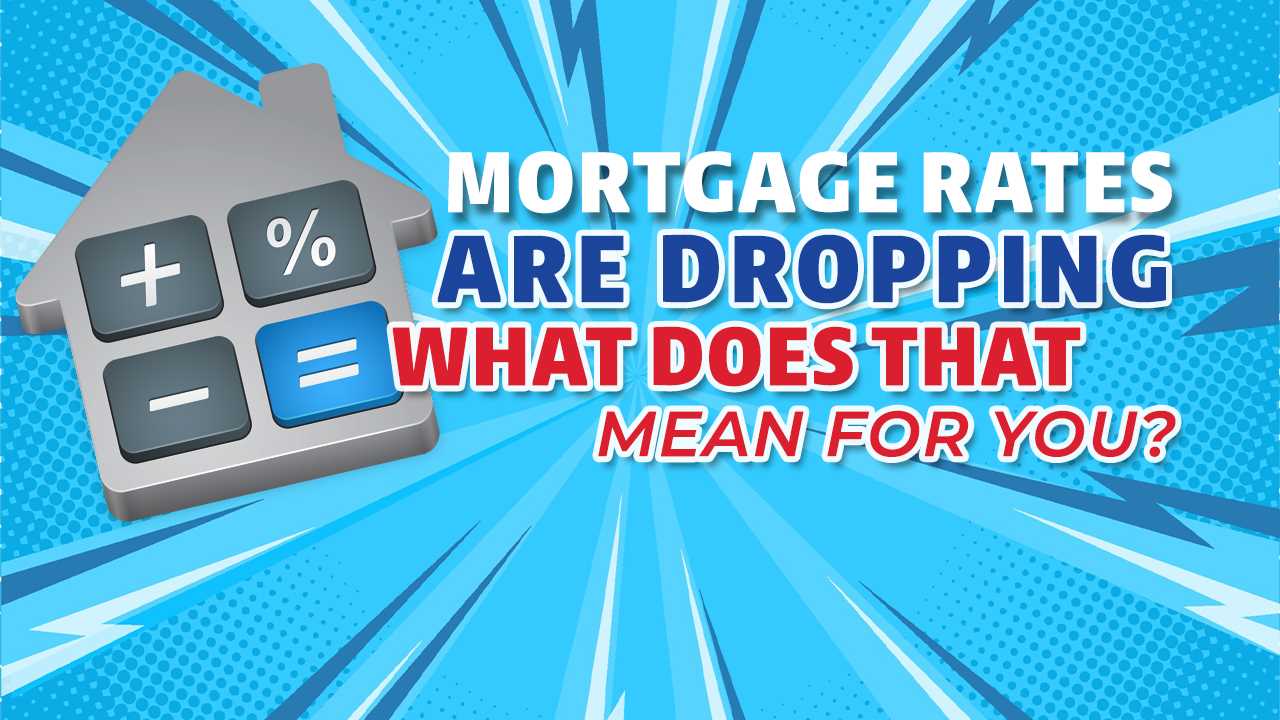Mortgage Rates Are Dropping. What Does That Mean for You?

Over the past 12 months, the housing market has seen a lot of discussion about mortgage rates. Rates have significantly increased compared to the start of 2022. They are now declining, and this is related to everything that is taking place in the economy.
The National Association of Realtors' (NAR) Senior Economist and Director of Forecasting, Nadia Evangelou, succinctly summarizes it as follows:
“Mortgage rates dropped even further this week as two main factors affecting today’s mortgage market became more favorable. Inflation continued to ease while the Federal Reserve switched to a smaller interest rate hike. As a result, according to Freddie Mac, the 30-year fixed mortgage rate fell to 6.31% from 6.33% the previous week.”
What does that entail for your plans to purchase a home? Mortgage rates change throughout time, which has an effect on your ability to buy things by changing how much it costs to buy a house. Your purchasing power can be increased even with a slight decline. This is how it goes.
The National Association of Realtors (NAR) estimates that the median price of a home is $379,100. Let's say you want to purchase a $400,000 house. Here is how your purchasing power can alter as mortgage rates rise or fall if you're trying to shop at that price range while keeping your monthly payment at $2,500 to $2,600 or less (see chart below). Those that are beyond that level are shown in red, while payments that are within your intended range are shown in green.

This demonstrates how your monthly mortgage payment can be affected by even a tiny quarter-point fluctuation in interest rates. Working with a reputable real estate agent who keeps track of what the industry experts predict for mortgage rates in the coming days, months, and year is crucial because of this.
Bottom Line
Mortgage rates have recently decreased, but they are likely to change in the future depending on what happens with inflation. It could be time to speak with a lender to determine if the current rate is more in line with your target for a monthly housing expense if a 7% rate was too expensive for you.
